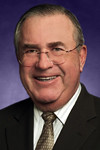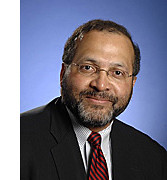Editor’s Note: Following are the top-paid CEOs of U.S.-based companies in the wireless industry. Last week, RCR Wireless News ran the list of the top 10 highest paid wireless executives. This week we are featuring No. 11- 20. Some caveats apply: private companies are not included in this list. Also, companies must be U.S.-based and while some companies like Google Inc. are making inroads into the wireless space, the majority of their revenues do not yet come from wireless products and services.
For last week’s 10 top-paid executives, click click here.
11. James Hyde 
Ntelos Corp. CEO
Salary: $385,284
Other Compensation: $5.6 million
Total Compensation: $6 million
No. 12 James Taiclet
American Tower Corp. CEO
Salary: $876,750
Other Compensation: $4.3 million
Total Compensation: $5.2 million
No. 13 John Rooney 
U.S. Cellular Corp. CEO
Salary: $882,000
Other Compensation: $3.4 million
Total Compensation: $4.3 million
No. 14 John Mcadam 
F5 Networks CEO
Salary: $595,606
Other Compensation: $3.4 million
Total Compensation: $4 million
No. 15 Sanjay Jha 
Motorola Inc. co-CEO
Salary: $905,769
Other Compensation: $2.87 million
Total Compensation: $3.77 million
No. 16 Maurice Tose 
TeleCommunications Systems Inc.
Salary: $497,530
Other Compensation: $3.2 million
Total Compensation: $3.7 million
No. 17 W. Benjamin Moreland
Crown Castle Communications CEO
Salary: $504,779
Other Compensation: $3.2 million
Total Compensation: $3.7 million
No. 18 Vincent Kelly
USA Mobility CEO
Salary: $600,000
Other Compensation: $2.9 million
Total Compensation: $3.5 million
No. 19 Mike Zafirovski 
Nortel Networks CEO
Salary: $727,251
Other Compensation: $2.7 million
Total Compensation: 43.4 million
No. 20 Robert Switz 
ADC Telecom CEO
Salary: $695,711
Other Compensation: $2.6 million
Total Compensation: $3.3 million
CEO Compensation: No. 11 through 20
ABOUT AUTHOR
